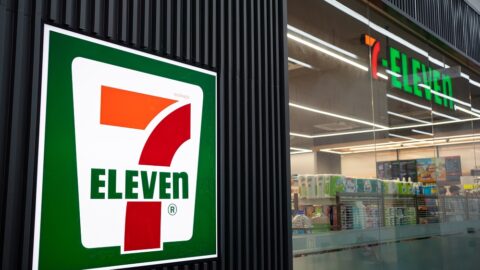Video game and electronics retailer GameStop saw its global sales decrease 13.6% to $3.05 billion in Q4, with consolidated comparable store sales declining 16.3%. With U.S. stores seeing comparable revenue plummet 20.8% during the quarter, the brand is closing more than 150 locations in 2017. However, the retailer anticipates that it will open approximately 35 new Collectibles stores globally throughout the year, and approximately 65 new Technology Brand stores.
Department stores, mall-based apparel brands and sporting goods retailers all have felt the brunt of foot traffic declines, and it appears even the video games sector is not immune to these struggles.
GameStop, the largest video games retailer in the world with more than 6,600 locations worldwide, has seen deep holiday discounts on games and downloadable software backfire. GameStop did not discount its console systems, with CFO Rob Lloyd noting that the brand didn’t want to follow competitors that had done so too aggressively. As a result, new hardware sales declined 29.1% and new software sales declined by 19.3% in the quarter.
GameStop earned $208.7 million in net income in Q4, but the number came in well under the $247.8 million reeled in during the same period a year ago. Profits for the full year came in at $353.2 million, but with 2017 net income guidance projected to be between $320 million to $354 million, it’s likely this year’s profit will be smaller.
With Amazon, Best Buy and Walmart all continuing to compete as video game sellers and Sony, Microsoft and Nintendo selling more games via their own digital storefronts, it’s certainly a more realistic possibility that GameStop is going to continue losing share as a video game purveyor.
The good news is that GameStop appears to be quite aware that it must differentiate itself from the pack, which is something that other retailers have often discovered too late. The brand has made moves to emphasize its fast-growing Technology Brands and Collectibles departments, and will continue to expand them in 2017.
Technology Brands sales, which are not included in the retailer’s comparable store sales metric, increased 43.9% to $256 million, primarily driven by Q4 year-over-year store growth. The department, which oversees its Simply Mac, Spring Mobile and Cricket Wireless stores, saw adjusted operating earnings of $34.0 million, an 88.9% increase compared to $18 million in the prior-year quarter.
Collectibles sales rose 27.8% to $212.4 million in Q4, driven by strong sales of Pokémon-related toys and apparel. The company added 17 Collectibles stores during the quarter, bringing the total global portfolio to 86 stores, including 24 ThinkGeek stores in the U.S.
While GameStop saw massive growth in the late 1990s and 2000s when video games’ popularity was booming, today the brand is demonstrating that it’s crucial for retailers to keep up with trends related to their primary offerings. Seeing that mobile and collectibles are becoming big draws for the extended GameStop brand, the retailer may be able to offset the potential market share losses in video games.












